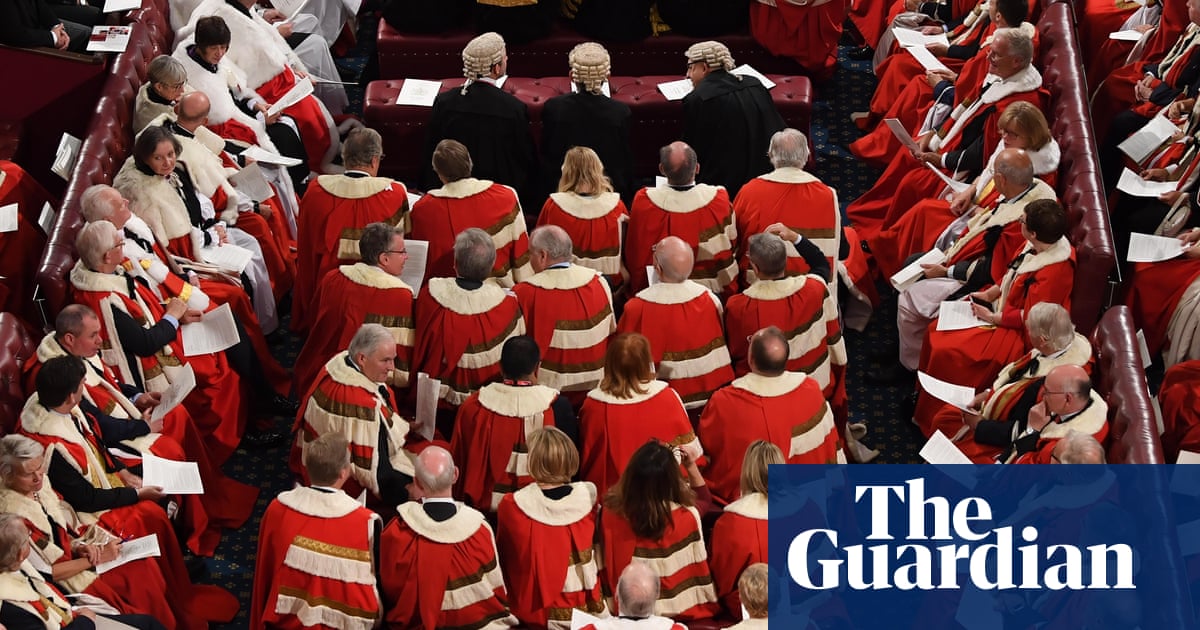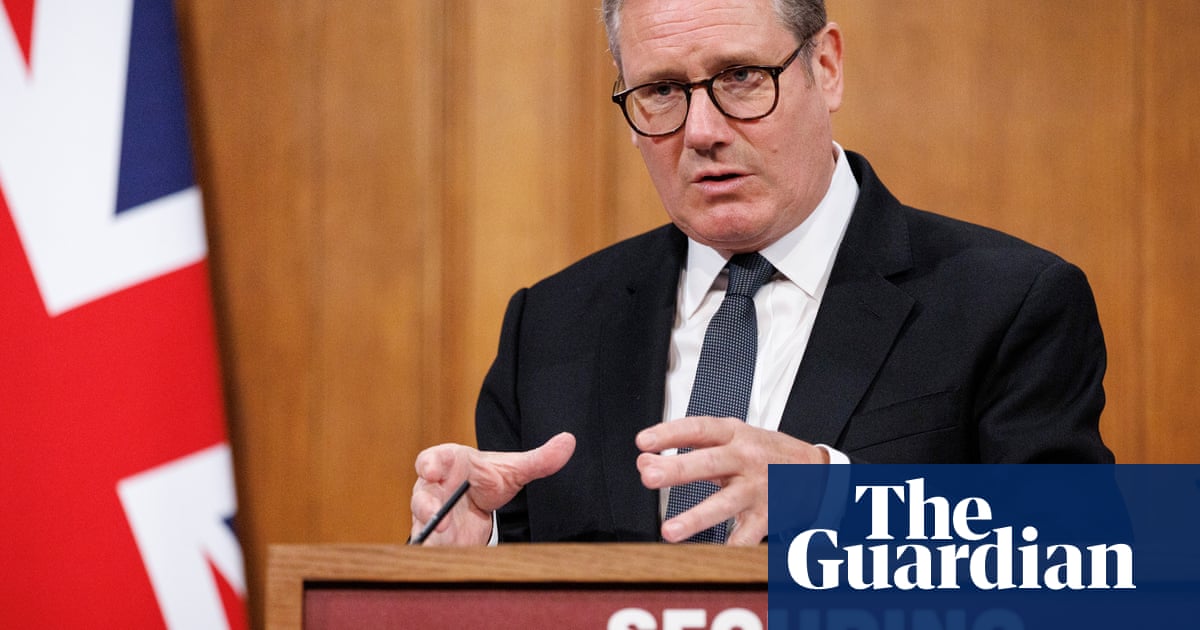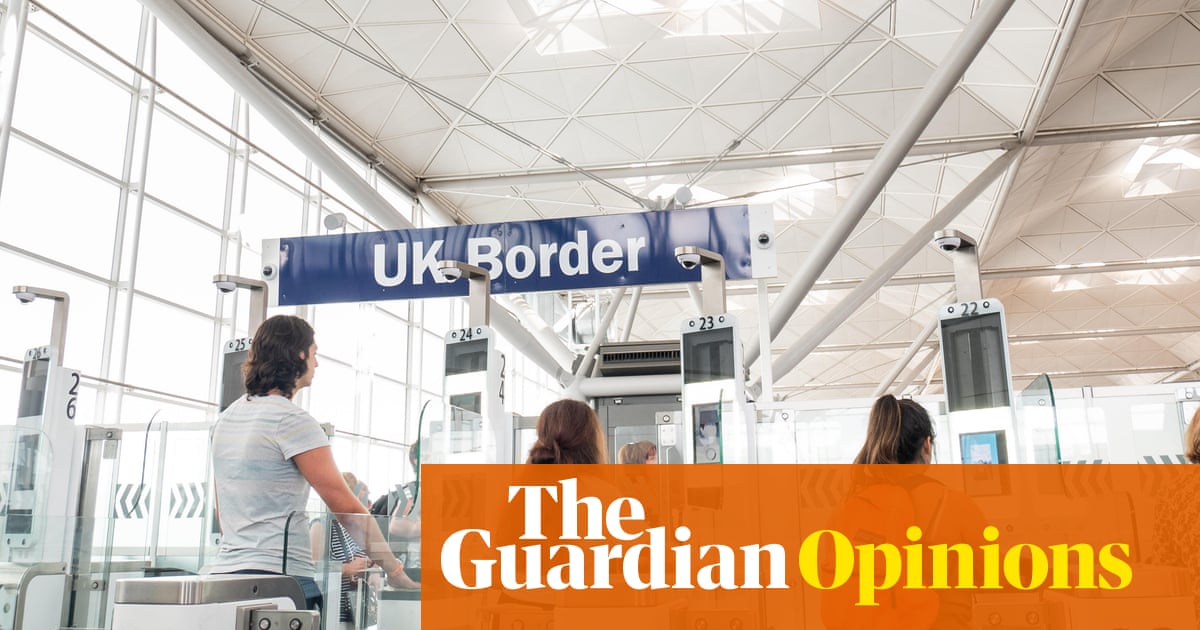Keir Starmer’s blueprint for curbing immigration could exacerbate skills shortages in sectors that would “fall over” without immigrant labour, the prime minister has been told.
Starmer said that businesses in particular had become “almost addicted to importing cheap labour” rather than investing in UK talent.
Trade bodies and businesses retorted on Monday by saying that new restrictions could only work if accompanied by urgent measures to help businesses recruit and train UK residents.
Here’s how sectors that rely heavily on overseas workers have reacted to Starmer’s planned crackdown.
The social care sector voiced the greatest concern at Labour’s policy shift.
“Thousands of older and disabled people rely on international workers for their care and support, who often take on positions which care companies struggle to fill,” said Jess McGregor, president of the Association of Directors of Adult Social Services (Adass).
“Cutting off this source of new workers without a plan about how to replace them domestically will worry many older and disabled people, their families and employers.
Almost a third of direct care workers in the UK are non-British, according to the Skills for Care charity.
The Unison trade union said it was “only the recruitment of workers from overseas that’s stopped the system from falling over”. The sector is still “many thousands of workers short”, said the Unison head of social care, Gavin Edwards.
Both Unison and Adass called for drastic measures to recruit more people to the sector to compensate for curbs on immigration.
McGregor said: “A shortage of care workers leads to a triple whammy of more reliance on agency staff, who the person drawing on care won’t know and who the provider will need to pay much more for.”
She said the shortage also led to “more people – especially women – giving up paid work to care for their loved ones, and many people potentially missing out on care altogether”.
Hospitality
Non-UK citizens make up less than 15% of the hospitality workforce, compared with about 25% pre-Covid, according to the chief executive of UK Hospitality, Kate Nicholls. Much of the decline is down to the introduction by the previous government of higher salary thresholds for skilled worker visas.
Nicholls said any further tightening of the labour market could have unwanted knock-on effects on an industry that already has 84,000 vacancies.
“We understand the need to get immigration under control. But there’s an inescapable conclusion that the labour market remains very tight,” Nicholls added.
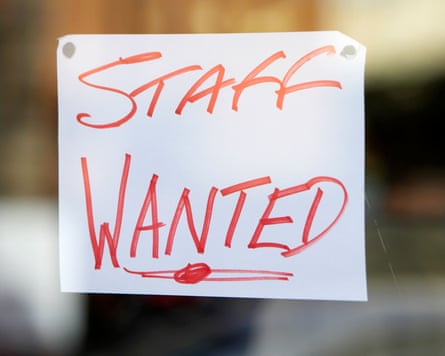
Nicholls called on the government to bring forward an employment and skills strategy to further drive domestic recruitment, including reform of the apprenticeship levy. She said this would help offset £3bn in added labour costs the industry is facing, partly to Rachel Reeves’s increase in employers’ national insurance contributions.
The pubs trade fears curbing immigration will make it more challenging to recruit those higher-paid staff who meet skilled visa salary thresholds, such as head chefs.
Emma McClarkin, the chief executive of the British Beer and Pub Association, echoed Nicholls’ calls for greater flexibility in how companies use funds from the apprenticeship levy. She also called for a broader easing of the regulatory burden, to “unshackle the sector so we can help employers and workers and the UK live up to its true potential”.
Health
There is no mention of doctors or nurses – the two largest professions in the NHS – in the white paper and it is unclear what impact the proposals will have on health staff coming from overseas.
But while ministers are not proposing a ban on recruiting foreign health workers such as in social care, NHS leaders are still concerned.
Danny Mortimer, the chief executive of NHS Employers, urged “caution and patience” before any changes to the wider immigration system to ensure hospitals and GP surgeries were not suddenly hit.
“The international workforce has been an essential component of the NHS throughout its history, and our colleagues from around the globe are hugely valued by their colleagues and patients,” Mortimer added.

The government’s upcoming 10-year health plan, expected in July, and a refresh of the NHS workforce plan must guarantee a “stable, safe and sustainable” recruitment strategy, Mortimer added.
Brexit has left the NHS increasingly dependent on doctors and nurses from poor “red list” countries, from which the World Health Organization says it is wrong to recruit.
Tens of thousands of health staff have been hired from countries such as Nigeria, Ghana and Zimbabwe since the UK left the EU single market at the end of 2020.
Prof Nicola Ranger, the general secretary of the Royal College of Nursing, said nursing in the UK had “truly global roots” and criticised the plans to reduce immigration as “pandering and scapegoating”.
She used her keynote speech at the union’s annual congress in Liverpool on Monday to stress that staff from overseas were “more than welcome in the United Kingdom”.
after newsletter promotion
Universities
Plans for a levy on income generated from international students will be ringing alarm bells in many universities.
The aim is to “reinvest” in higher education and skills, potentially getting better-off institutions to support those with fewer resources, but the proposal will be controversial among many vice-chancellors who will see it as punishment for success.
As the value of domestic tuition fees has fallen, universities have become dependent on the significantly higher fees of international students who accounted for 51% of all postgraduate students in 2023/4 and 14% of undergraduates.
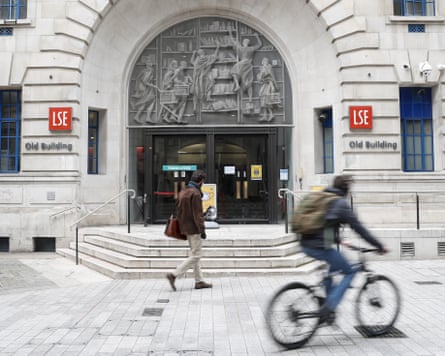
Just under 70% of students at the London School of Economics and Political Science come from overseas, at University College London it is about 48%, while at Coventry it is 42%. But numbers have been falling, putting pressure on university budgets.
Vivienne Stern, the chief executive of Universities UK which represents the sector, urged the government to think carefully about the impact a levy on international student fees would have on universities and the attractiveness of the UK as a study destination.
Plans to reduce the amount of time overseas graduates can remain in the UK on the graduate route visa from two years to 18 months, could further deter international students who may look elsewhere in the world for better work/study opportunities.
Construction and engineering
Bricklayers, roofers, stonemasons, plumbers and carpenters are among the occupations that can qualify for skilled worker visas – suggesting the UK government still considers construction as one area that needs labour from abroad.
Rico Wojtulewicz, the head of policy at the National Federation of Builders, which represents small to mid-sized companies, said that the sector does not want to rely on foreign labour, but that it was tricky to find the right skills.
“We don’t have enough of it in the UK so we have to go to other countries to find it,” he said.
Given the three to five years needed to train people up, “we will still need a good level of immigration,” he added. “The changes are going to be causing us an issue.”
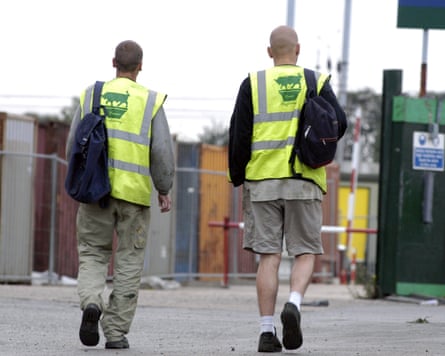
A spokesperson for the Construction Industry Training Board said that it wanted “an evidence-led migration policy that better links to domestic skills and labour market policies”, including growing the domestic construction workforce.
Yet the training body also pointed out that the number of migrant workers in construction fell to 9.8% in 2021, the last available figures, down from 10.7% in 2018 – although that was partly because of Covid-19.
Manufacturers expressed concern that limits on immigration won’t be accompanied by help for training for British workers. Stephen Phipson, the chief executive of Make UK, a lobby group, said there was a “skills crisis”.
“What is now essential is that the government recognises that manufacturers only seek overseas staff because the domestic skills training system is fundamentally flawed,” Phipson said. He called for a plan for technical skills training, and reforms of the apprenticeship levy that big companies must pay.

 3 hours ago
4
3 hours ago
4


